The rumors were true: Apple debuts a 128GB fourth gen iPad
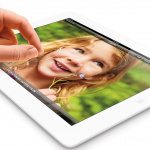
Apple attracts rumors like no other tech company. In the past week alone we’ve heard about what to expect from the iPad 5, suggestions that Apple is working on a budget iPhone that may or may not feature plenty of plastic in its design, and there’s even been talk of a larger capacity iPad 4.
It turns out this last rumor was right on the money, as Apple has just announced a 128GB version of the fourth generation iPad with Retina display.
Samsung rolls out a limited edition Garnet Red version of the Galaxy Tab 2
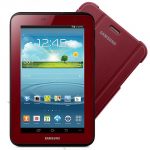
Red seems to be the in color for mobile devices at the moment. First Verizon gave the world a red edition of Nokia's mid-range Lumia 822 smartphone, and now Samsung has introduced a Garnet Red version of its popular Galaxy Tab 2 slate. This isn't the first Samsung device to come in the bloody hue -- AT&T offered a Garnet Red edition of the Galaxy S III last summer.
Currently only available for the US market, the striking tablet comes with a matching case and Android 4.1 Jelly Bean onboard, in place of Ice Cream Sandwich. All the other specs remain the same, such as the 7 inch 1024 by 600 screen, 1GHz dual-core processor, 1GB RAM, and 8GB of internal storage.
Virgin Media to begin charging for Wi-Fi on the London Underground
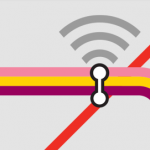
Introduced in time for last year’s Olympics, Virgin Media’s free Wi-Fi service has proven to be a big hit with people travelling on the tube, but all good things come to an end, and this particular gravy train is about to terminate. Well, for some people at least.
Although Virgin will be ending its free-to-all Wi-Fi service from Tuesday (29 January), the good news is if you’re a Virgin Media broadband or mobile customer, or are with EE (Orange and T-Mobile), or Vodafone, you’ll be able to continue to use it for gratis. So that’s bad news for O2 and 3 subscribers in particular.
Like Zune, Microsoft can't get Surface right
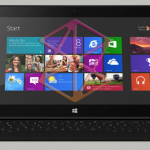
When Microsoft launched its portable music player Zune in 2006 few thought it would be a serious contender to Apple’s iPod. The fact that it was a US-only release spoke volumes. It was a product the firm simply didn’t have enough confidence in for a global launch.
And now we’re faced with a similar launch strategy for Microsoft Surface Windows 8 Pro. Yesterday the Redmond, Wash.-based corporation announced the delayed slate will be "available for purchase on Feb. 9, 2013, in the United States and Canada at all Microsoft retail stores, microsoftstore.com, Staples and Best Buy in the US, as well as from a number of locations in Canada". And the rest of the world? There’s no word.
The PC is dying? My own customers prove just the contrary

There's an excellent debate raging on the front pages of BetaNews for the past few weeks, and it's a topic that I feel quite entrenched in. Seeing as my computer repair business FireLogic deals with customers of all types on a daily basis, I thought I should drop my own two cents in on the subject. Joe Wilcox has argued the death knell for the PC is just about here, while a few others, like Wayne Williams (and myself), dispute the notion with quite the vigor.
I think this topic deserves some definite attention because there seems to be a perception out there that the rise in mobile devices such as tablets, smartphones and the like will completely eradicate the traditional PC. It's a touchy topic for my colleagues in the computer repair industry, and something that is frequently debated on the forums of a website dedicated to "our kind" over at Technibble.com.
Is the Lenovo Chromebook right for education?
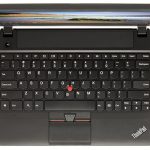
That's the question we're asking in the newsroom, and the consensus is "No", and that most certainly is my initial reaction. But on further examination, I'm at "depends", meaning for some schools but not for many others. Here size of school district matters, because Lenovo commits considerable extra IT-oriented resources to this newest ThinkPad that should appeal to people managing larger-scale deployments. But smaller schools, such as charter, private or small town, should consider spending less on another model.
Today the two companies announced the new computer, ThinkPad X131e Chromebook, which goes on sale February 26. Quick specs: 11.6-inch display with 1366 x 768 resolution; Intel Celeron processor; 16GB sold-state drive; webcam; Ethernet; dual-bad Wi-Fi N; 2 USB 3.0 ports; single (separate) ports for USB 2.0, HDMI and VGA; and Chrome OS. Lenovo doesn't state which processor or provide dimensions but does give weight as 1.8 kilograms (3.9 pounds). Price is $429, or $459 with recommended IT maintenance service.
Amazon launches a dedicated MP3 store for iPhone users

Amazon has created a mobile MP3 store optimized specifically for use on iPhones and iPod touches. Built on HTML5, the new store lets users browse the 22 million strong MP3 catalog, and buy tracks directly.
"Since the launch of the Amazon Cloud Player app for iPhone and iPod touch, a top request from customers has been the ability to buy music from Amazon right from their devices," Steve Boom, Vice President of Amazon Music said. "For the first time ever, iOS users have a way do that -- now they can access Amazon’s huge catalog of music, features like personalized recommendations, deals like albums for $5, songs for $0.69, and they can buy their music once and use it everywhere".
The PC is dead to me, or soon will be

Later this month, I plan to jump cold feet into the next computing era by making a tablet my primary PC. I was all primed to start last year, but improved Google Chromebooks derailed the experiment. New year is here and good time for a computing resolution. Already, I made major computing platform shift in 2012 -- ARM, Android and Chrome OS. I'll write about the journey, which surely will tumultuous, at least to start.
I won't go alone. Yesterday morning, my wife asked about trading up to a larger tablet (she used the Nexus 7 I bought her in July). The request was totally unexpected. I added her as another user to my Nexus 10 and let her play around. She likes! She likes! So I ordered her the larger tablet, planning to sell the older one (and some other gear, to cover cost). The idea: We would together go tablet as main devices, with Chromebook as backup (hey, sometimes you need Flash, for example). We will share my Nexus 7, which has HSPA+ radio, to carry around when out and about (me sitting in the man chair while the women shop; she while, say, waiting for her dad at the doctor's office). But both of us will primarily use our own Nexus 10s.
The PC is far from dead

This week, my colleague Joe Wilcox wrote about the popular catch-phrase these days -- the "post-PC era". The only problem: this concept is wrong. Yes, he included lots of analyst information, fancy numbers and predictions, but none of it is realistic to the vast majority of computing users.
Yes, tablets are popular. There is no denying that. The iPad, despite not being the first tablet, brought the concept into the real world. Amazon and Google made the devices affordable. Sure, tablets make a great solution for checking email, weather and answering a question about that movie or show on your TV -- the one that occurs while sitting on your sofa.
Ding, dong, the PC's dead

So much for that Windows 8 pick-me-up. The PC market got no 5-Hour Energy lift during fourth quarter. If anything, the personal computer is out of shape and out of breath, and no Microsoft personal trainer can change that. Gartner calls the current crisis -- and it is for the WinTel and MacTel folks -- a "structural shift". The tablet is the slimmer and shapelier alternative, and it kicks the PC's ass all over the work-out floor.
"Tablets have dramatically changed the device landscape for PCs, not so much by 'cannibalizing' PC sales, but by causing PC users to shift consumption to tablets rather than replacing older PCs", Mikako Kitagawa, Gartner principal analyst, says. "Whereas as once we imagined a world in which individual users would have both a PC and a tablet as personal devices, we increasingly suspect that most individuals will shift consumption activity to a personal tablet, and perform creative and administrative tasks on a shared PC. There will be some individuals who retain both, but we believe they will be exception and not the norm. Therefore, we hypothesize that buyers will not replace secondary PCs in the household, instead allowing them to age out and shifting consumption to a tablet".
ASUS announces the MeMO Pad, a 7-inch Jelly Bean tablet for $149
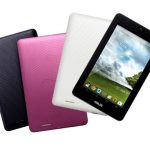
ASUS waited until after CES to take the wraps off its MeMo Pad, and what it lacks in specs the Nexus 7 lookalike makes up for in price. With a wallet-friendly MSRP of $149, the MeMo Pad runs Android 4.1 Jelly Bean and is powered by a 1GHz VIA WM8950 CPU and Mali-400 GPU.
The device sports a 10-point multi-touch LED-backlit display with 1024 by 600 resolution, 8 or 16GB of internal storage, and a microSD card slot which will let you boost capacity by an additional 32GB.
Which size tablet is right for you?

There is no shortage of new tablets being announced at this week's Consumer Electronics Show -- Acer Iconia B1-A71, Polaroid M7 and M10 and VIZIO 11.6" Tablet PC, among many others. Meanwhile, NPD DisplaySearch forecasts that global tablet shipments will surpass notebooks this year. But what's interesting is a dramatic shift in size preference, which is why I want to know: Which is right for you?
DisplaySearch predicts that tablets with 7-to-8 inch screens will overwhelmingly dominate the market, with 45 percent share. Meanwhile, 9.7 inches -- the size Apple popularized with iPad -- will fall to just 17 percent share. Yet many of the slates debuting at CES are in the larger categories, typically between 10.1 and 11.6 inches. Does size really matter that much, and is smaller better?
Windows 8 sinks with US laptop sales
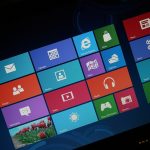
I rarely quote press releases, but analyst missives are a rare exception because sometimes they make the point so much better than any paraphrasing. "Despite the hype, and hope, around the launch of Windows 8, the new operating system did little to boost holiday sales or improve the year-long Windows notebook sales decline", according to NPD. That's the dismal news for US holiday retail sales between Nov. 18 and Dec. 22, 2012. Windows 8 is a disaster, as I expressed when NPD released early sales data in late November. Matters are worse. This is no longer the Titanic sinking but a fleet of ships.
Gartner and IDC are about to drop global fourth-quarter PC shipment data, but in context of today's separate report from NPD DisplaySearch, expect blood in the water and post-PC sharks circling the victims. According to DisplaySearch, tablet shipments surpassed laptops in the United States last year. Stated bluntly: "increasing tablet PC adoption is stymieing notebook PC growth". Yikes!
Holy post-PC era! Tablet shipments will surpass laptops this year

Quick, send a load of Valium to Intel and Microsoft executives! Gasp -- to Apple, too. Today NPD DisplaySearch forecasts that tablet shipments will exceed notebooks in 2013, globally. But in China and the United States, the milestone passed last year.
About 18 months ago, analysts started the smartphone-shipments-are-greater-than-PCs meme, which I didn't take too seriously. The market dynamics are different and handsets' functionally don't replace personal computers. Tablets are a whole other matter, because they can do just that. The category's rise over laptops is hugely significant.
Qualcomm unveils the Snapdragon 800 and 600 processors, says goodbye to S series
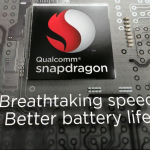
This year Microsoft decided to call it quits on CES 2013 and give up its opening show keynote presentation (even though its CEO Steve Ballmer did make a brief unexpected appearance). Mobile giant Qualcomm took over Microsoft's traditional and highly coveted spot, and made the most of it by announcing the company's new Snapdragon processor line, that will power future mid-range and high-end smartphones and tablets.
The mobile giant decided to bury the S series branding, although the S4 Pro remains a resounding name through smartphones like the Google Nexus 4 and HTC DROID DNA and the recently announced Sony Xperia Z and Xperia ZL. Instead Qualcomm introduced new Snapdragon 600 and Snapdragon 800 processors. The former is similar to the currently available Snapdragon S4 Pro but the latter is a whole new beast altogether.
Recent Headlines
BetaNews, your source for breaking tech news, reviews, and in-depth reporting since 1998.
© 1998-2025 BetaNews, Inc. All Rights Reserved. About Us - Privacy Policy - Cookie Policy - Sitemap.